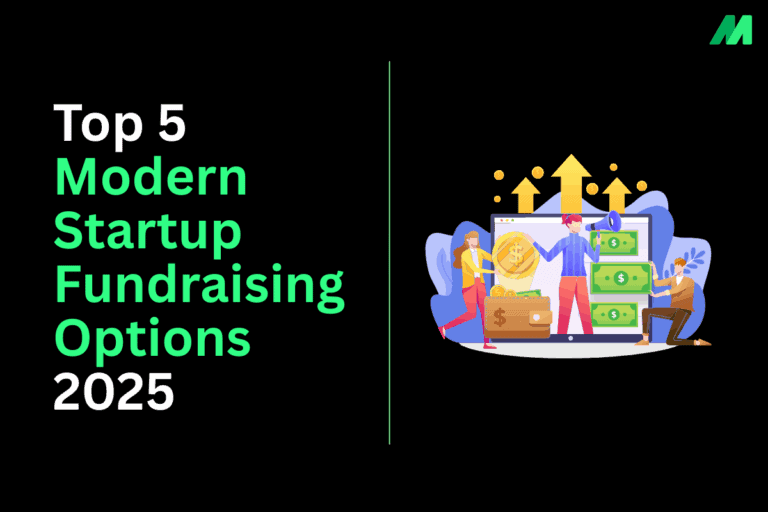Freelancing isn’t just about what you know—it’s also about how you work and connect with clients. To stand out, you need to know your hard skills (the technical stuff), your soft skills (how you handle yourself and others), your transferable skills (what you can bring from past experiences), and your priority skills (the ones you want to focus on). This guide breaks down these skills in a simple way to help you figure out what you’re really good at and how to use it to land more freelance work.
Hard Skills—The Nitty-Gritty
Think of them as the abilities you can actually *do*. They’re the techy things, the stuff you can learn, and usually, there’s a way to measure how good you are at them, and they connect to a job, a certain field, or some kind of platform.
You pick these up through school, specific training programs, getting certified in something, or just plain old experience. These skills are the base of what you *really* provide to people who give you money.
Hard skills are often the primary service you’ll market as a freelancer. Basically, they’re the things you’re good at that clients will pay you for.
Characteristics
- You can measure them: Tests, certificates, a portfolio–you can *prove* you have these skills.
- They get stuff DONE: They help you finish a task or project.
- Job-specific, usually: You need ’em for certain work. Like coding if you build websites, or visual design if you’re a graphics person.
Examples of Hard Skills in Freelancing
| Skill Category | Example Skills | How Freelancers Use Them |
| Writing & Editing | SEO content, copywriting, proofreading | Blog posts, website content, marketing copy |
| Design | Adobe Photoshop, UX/UI design, Canva | Logos, product packaging, web layouts |
| Programming & Tech | Python, web development, data analysis | Websites, apps, automation scripts |
| Marketing | SEO, PPC advertising, email campaigns | Brand building, campaign management |
| Finance & Admin | Bookkeeping, Excel, financial analysis | Invoicing, payroll services, budgeting |
| Language Skills | Translation, localization, transcription | Multilingual content creation |
| Videography | Editing, animation, sound engineering | Promo videos, explainer animations |
How to Demonstrate Hard Skills?
- Certifications: Got a piece of paper from Google, Adobe, Microsoft or someone else famous? Wave it around.
- Portfolio: Got work you are happy with? Show off past work, designs, writing samples, or demos.
- Skill tests: If you take tests and do well, put those on your LinkedIn.
- Client Outcomes: Got data, testimonials or feedback after you did your job? Gather that proof of a job well done and get it into your marketing material (like more people visiting a site, or feedback from a client on the outcome).
Importance for Freelancers
Let’s be honest, hard skills are what get people looking at you first. They prove you know your stuff and can get real results. Got experience building WordPress sites? People looking for web designers are way more likely to call you up.
Soft Skills—The People Stuff
Alright, soft skills…these are all about you. How you act, how you get along with people, how you handle yourself at work.
Hard skills get you in the door; soft skills decide if people want to work with you again, if you can handle pressure, and if you can actually build any kind of lasting career.
Your interpersonal qualities and ways of working – these are critical for client satisfaction and retention
Characteristics
- All about people: How you talk, share, and lead.
- Not techy: Not tied to tools, but to your mindset.
- Work anywhere: Good no matter what you do.
Examples of Soft Skills in Freelancing
| Skill | Description | Freelance Application Example |
| Communication | Clear, concise exchanges; listening skills | Presenting ideas, clarifying goals, updating clients |
| Time Management | Organizing workflow; meeting deadlines | Handling multiple projects efficiently |
| Adaptability | Adjusting to changes or unknowns | Shifting project scope or software mid-project |
| Problem-Solving | Tackling challenges creatively | Resolving client issues proactively |
| Self-motivation | Driving oneself to achieve goals | Maintaining productivity without supervision |
| Emotional Intelligence | Understanding self and others | Building relationships, negotiating |
| Professionalism | Delivering with reliability and integrity | Ethical business conduct, respectful tone |
| Conflict Resolution | Managing disagreements diplomatically | Handling feedback or scope changes |
How to Demonstrate Soft Skills
- Client testimonials: Get clients to say nice things. Did you respond quickly? Were you reliable? Easy to work with? THAT’s gold!!
- Feedback: Ask for opinions, and *actually* listen so you can get better.
- Consistent communication: Give people updates, make sure everyone’s on the same page.
- Documented processes: In your proposals, show how you stay on top of things.
Why They Matter for Freelancers
Soft skills = happy clients who come back and tell their friends. Even if you’re a total expert at the technical stuff, if you’re not easy to deal with, people won’t stick around. People would rather work with someone who is nice to deal with even if they have ok skills.
The Balance Between Hard and Soft Skills
Best freelancers have both:
- Expertise: Makes people want to hire you.
- Great results: Meets their needs.
- Happy clients: Keep them coming back.
Real-World Example
Let’s say a designer makes killer graphics; that’s the hard skill. BUT they always miss deadlines and are impossible to talk to. Their clients will run to someone else who might be a little less talented but communicates and delivers when they say they will.
Improving and Showcasing Both Skill Types
Hard Skills: Take courses and get those pieces of paper. Practice with projects, real or fake. Keep up with what’s new.
Soft Skills: Practice listening to people. Keep organised to work efficiently. Ask for feedback on your people skills. Read up on how to handle people and tricky situations.
How to Present Both in Your Freelance Brand
Put your cool stuff on display (project examples, and skills on your resume)
Then weave in the soft skills (like testimonials, happy clients, or details on how you’ll solve a certain problem).
What Are Transferable Skills?
I’m glad you asked! These are skills or abilities you picked up in one job and are useful in other kinds of work. It might be the key to your next big gig. Skills from your past experiences that can be applied in freelancing—not always obvious at first glance.
Characteristics
- Applicable to many jobs: They can be used across many different fields and jobs
- Can you adapt easily: If you can adapt to a new project or the client quickly, then these are good skills to have
- You might not know they are useful – They are less obvious than the job skills, but still very important
Why Are These Important?
As a freelancer you are going to be working on many different projects and that means you need lots of different skills.
- If you have transferable skills this means
- You don’t need to learn lots of new skills on top of your other skills
- If you are good you can easily market yourself in a new freelance area
- If you are knowable, this gives you a better experience and gives values faster
Examples of Transferable Skills in Freelancing
| Original Experience | Transferable Skill | Freelance Application |
| Teacher | Explaining concepts clearly | E-learning content creation, tutoring services |
| Project Manager | Organization and planning | Virtual assistant, project coordination |
| Customer Service Rep | Communication and empathy | Client management, social media moderation |
| Data Analyst | Data interpretation | Market research, spreadsheet analysis |
| Salesperson | Negotiation and persuasion | Content writing, marketing consultancy |
| Event Coordinator | Scheduling and logistics | Remote event planning, webinar hosting |
How to Identify Your Transferable Skills?
- Consider jobs you have worked at, what was the job tasks that you performed
- Consider the types of jobs where you picked up new things quickly
- If you are friends with old workmates what can you do that they thought was useful.
What are Priority Skills?
They means you get to promote the important skills and what you do on your freelance work.
These skills are a good match with what you are good at and the business goals and requirements.
Make sure that these skills are in the top 3 to start a freelance career with.
Why are they good to have?
- Focus better: Helps you spend your time on jobs that you can do rather than spreading yourself too thinly across lots of different areas.
- Specialisation: Clients respect people who are very good at 1 thing rather than ok at several.
- Easier Marketing: If you understand all the different skills needed, you can create better marketing material, such as profiles and adverts.
- Beat the competition: Getting into a niche where there is less competition keeps prices cheaper.
How to find these skills?
Make sure you consider that all the skills must have these
- Be strong
- Have good demand.
- Enjoys the jobs
- Are different




